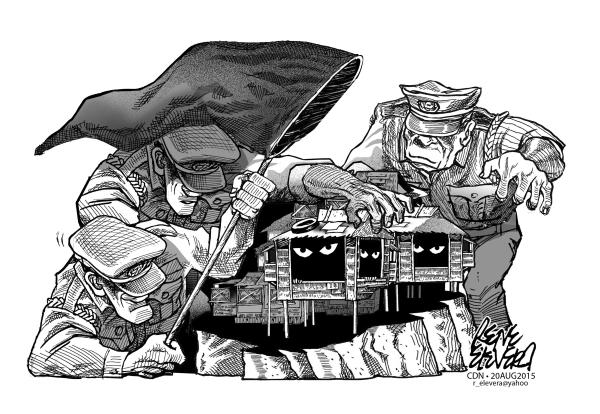
PNP Director General Ricardo Marquez may be on to something when he proposed that the nation’s police force recruit college undergraduates or graduates of the K to 12 system as police officers.
Marquez’s proposal stemmed from sad experience. He recounted that rookie police officers were reluctant, even refusing to go on active patrol duty since they felt that it was “beneath” them.
Maybe that frame of mind was in place for police officers who were nowhere to be found to respond quickly enough to the daylight ambush of Jaime Villaceran in the busy streets of Colon last July.
Some were attending a seminar. Others were too far away to notice.
Could police visibility have prevented two other ambushes that occurred in recent weeks: that of lawyer Amelie Alegre in barangay Looc, Mandaue City last August 13 and former police asset Fritz Cobong in Lawaan, Talisay City six days earlier.
Barangay tanods on patrol could be more visible and just as effective as beat patrol officers, even if they are paid less by taxpayers than their distinguished counterparts in the police force.
Unlike police officers, however, they’re armed at most with a night stick or a bolo.
They can’t bring hand guns which are the basic equipment of police officers who are paid to serve and protect the public, duty that brings them on the street more than in their air-conditioned offices.
Marquez’s proposal that non-college graduates can enter the PNP as patrolman or patrol officers who could serve as responders, street patrollers or PNP vehicle drivers deserves a close look.
If they wish to move up in rank, they could apply for distance education provided by the country’s universities and colleges so they can acquire their degrees.
Not everyone is receptive to the idea.
The Civil Service Commission (CSC) said lowering the requirements would run counter to the national government’s goal to professionalize the PNP.
At least Marquez has a supporter in Sen. Grace Poe, who said she would file a bill to allow non college graduates to serve in the PNP as uniformed personnel.
Or maybe the PNP can take a page from the US military, which offers courses to their soldiers that would allow them to be employed in other fields in the event that they retire or choose to leave the armed forces for greener pastures.
Marquez’s proposal should seriously be considered not only to help make our streets safer but to help the youth maximize their energy and potential for employment.